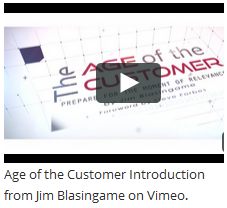People start businesses because of love.
We love to make and/or sell things: shoe laces, tires, socks, cars, soap, computers, bread, air conditioners, etc. You love your business; I love my business. Starting and running a business is a love story.
Yes, I know. Our businesses are not always lovable. Indeed, a business is like a teenager: You may not always like it, but you always love it. Which is a good thing because if you didn’t love your business you wouldn’t come back the day after it gave you the worst day of your life.
 As Tina Turner asked in her song, what’s love got to do with it? Love is an important component of being in business, but it can also be a problem. Is it possible to love your business too much? As business owners, we know how to fall in love with our businesses, but we usually don’t know how and when to fall out of love with it. Here’s a great American love story that went wrong:
As Tina Turner asked in her song, what’s love got to do with it? Love is an important component of being in business, but it can also be a problem. Is it possible to love your business too much? As business owners, we know how to fall in love with our businesses, but we usually don’t know how and when to fall out of love with it. Here’s a great American love story that went wrong:
In the early 20th century, the railroad industry thought they were in the railroad business instead of the transportation business. When freight trucks and better roads came along, many railroad companies failed because they loved what they did more than how they did it.
Here are two happy love stories:
In 1993, the octogenarian IBM business model was in trouble. Top leadership saved the company by realizing they weren’t in the computer business, but rather the information management. So they shifted from being hardware/software centric to adding services. IBM understood that they should only be in love with delivering digital information solutions.
Founded in 1916 in Seattle, Boeing had deep roots. But in 2001, the leadership realized their future was in aerospace, not just airlines, and moved the headquarters to Chicago. They loved what they did, not where they did it.
Both IBM and Boeing saved themselves by following:
Blasingame’s Law of Business Love
It’s okay to fall in love with what you do, but it’s not okay to fall in love with how you do it.
What do you love about your business? I’m serious; make a list. Then go back over the list and identify anything might be holding you back. You probably can’t do this by yourself, so engage your team.
As you go through this process, listen for and beware of responses that sound like: “Well, that’s how we’ve always done it.” Statements like that make a great epitaph on the tombstone of a dead business.
Love your business, but don’t love how you do business.




